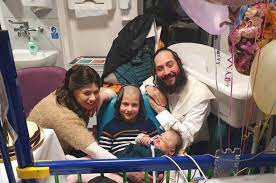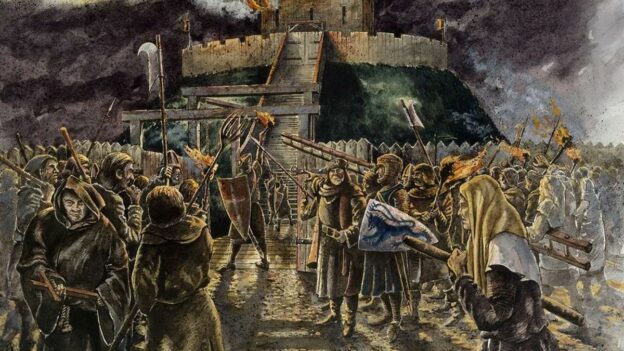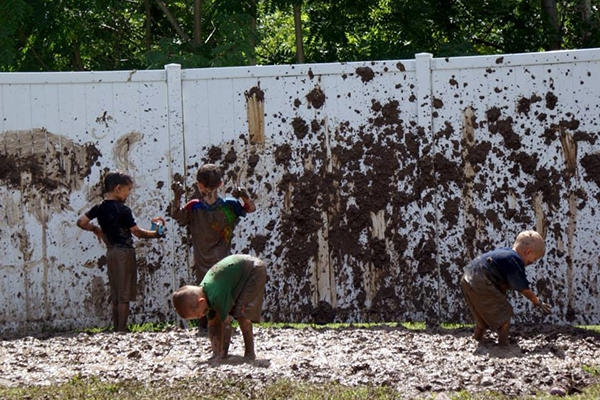A piece I wrote for Religion News Service about the Alta Fixsler case can be read here.


A piece I wrote for Religion News Service about the Alta Fixsler case can be read here.

A piece I wrote about how people judge others on how they look appears at NBC-THINK, and can be read here.

It has always struck me as ironic that the largest Jewish community in America, that is to say, New York’s, lives in a city named after an English one infamous for the killing of all its Jews.
A historical overview of the York Massacre and a reflection of the Church of England’s planned apology for its predecessors’ treatment of Jews comprise the focus of my most recent Ami column, which you can read here.

Well, does He or doesn’t He?
Hashem, that is. Does he show special favor to some or not?
That question is placed by Rabbi Ami or Rabbi Asi (Berachos 20b) in the mouths of angels, who asked the Creator about the description of Him (Devarim 10:17) in this week’s parsha: “Who favors no one and takes no bribe.”
But yet, the angels said, “You, nevertheless, show favor to Yisrael, as it is written: ‘Hashem will show favor to you and give you peace’” (Bamidbar 6:26).
Hashem’s reply: “How can I not show favor to Yisrael? I wrote for them in the Torah: ‘And you shall eat and be satisfied, and bless Hashem your G-d’ (Devarim 8:10) [meaning that only if one is satiated is there an obligation to recite birchas hamazon, the blessing after a meal], yet they recite it even if they have eaten a mere olive’s or egg’s volume!”
What a strange reply. Firstly, reciting a bracha when it isn’t required isn’t permitted – so by what right did the rabbis of the Talmud allow it for a sparse meal? And secondly, the response doesn’t answer the question! Isn’t Hashem still showing favoritism?
Unless… reciting birchas hamazon even on a small amount doesn’t represent any changing of the requirement itself for saying the bracha but is rather a new sort of fulfilment of that requirement – in other words, an embrace of being “satisfied” with less.
If we are “satisfied” with any small degree of Hashem’s blessing – if we recognize what a divine kindness even a minimal amount of sustenance is, and feel sincere gratitude for it – then our own declining to demand a more literal satisfaction, full stomachs, may be what allows Hashem to be “satisfied,” so to speak, with less from us.
In which case, His “showing favor” to Yisrael is not really that at all but rather something of a midda kineged midda, a quid pro quo – an act of perfect justice.
© 2021 Rabbi Avi Shafran

Heard about the Jews who endorsed a blood libel?
I know, sounds like the setup for a truly tasteless joke. Unfortunately it’s not.
To read about what it is, please see my most recent Ami column, here.

The Jewish credo, “the Shema,” declares Moshe’s directive to love Hashem “with all your heart, with all your soul and with all your resources” (Devarim 6:5).
And, famously, Chazal understand “all your soul” as meaning even if being faithful to Hashem means dying as a result (Berachos 54a).
That command has been honored over the millennia in countless acts of Jewish martyrdom at the hands of enemies who sought to force their victims to violate one of the precepts for which a Jew is to die rather than transgress, or in times when such evildoers sought to uproot Torah observance from Jewish people.
Martyrdom is the ultimate self-abnegation. It is, though, not the only expression of selflessness.
Rabbi Yisrael Salanter noted that the directive to love Hashem with all our souls encompasses not only readiness to lose our entire souls (the ultimate negation of self) but any overlooking of self-interest in the service of the Divine.
Every situation, in other words, whereby “negation” of one’s self serves a higher purpose.
It happens often that one is faced with a situation that violates one’s sense of self, or self-image. It might be a slight, or an open insult; a usurping of a turn or an unwarranted deprivation.
If such situations are not legally actionable (like suffering a financial loss or damage due to another’s misdeed), it is commendable to recognize that it is only one’s “self” that has been put at stake, and that “dying” a little — overlooking the slight — is not only proper but an actual act of Kiddush Hashem, a mini-martyrdom.
© 2021 Rabbi Avi Shafran

A piece I wrote about the Netflix series “My Unorthodox Life” was published by Religion News Service and appears in The Washington Post. It can be read here.


Sefer Devarim begins with Moshe Rabbeinu’s recounting of the Jewish People’s history since the exodus from Egypt, through the years of desert-wandering.
And our communal reading of the beginning of the sefer coincides yearly with our own annual survey of millennia since, our lookback at the myriad travails our forebears endured; parshas Devarim always precedes Tisha B’Av.
Abba Shaul (Shabbos, 133b) tells us to emulate certain name-descriptions of Hashem: “Just as He is compassionate and merciful, so too should you be compassionate and merciful.”
I’ve wondered about the fact that Hashem’s most “descriptive” name, the Tetragrammaton, implies “timelessness,” its letters signaling “Was, Is and Will Be.” In what way might we even think of emulating His temporal omnipresence?
Perhaps, though, in a way, we can.
Jews have history on their hearts. We are exquisitely sensitive to the past, not only the recent, but the long-ago.
On Tisha B’Av, we will fast and mourn the tolls taken by our people’s travails over time. We will sit low for much of the day, and read about the destruction of the Batei Mikdash, reciting poetic dirges about those Jewish catastrophes and many others, down through the Middle Ages to more proximate collective Jewish tragedies.
The fact, though, that most of the events we will mourn took place hundreds, even thousands, of years ago does not make them less timely. We live in the past no less than the present.
And so, perhaps, combined with our determination to live meaningfully in the here-and-now and our relentless pining for the ultimate future – Tisha B’Av is pointedly followed by the “Seven of Consolation,” when the haftaros read in shul consist of Divine reassurances that there is an end-point to history — we imperfectly parallel Hashem’s existence outside of time.
© 2021 Rabbi Avi Shafran

At first read, the tribes of Gad, Reuvein and half of Menashe seem to be making an entirely unreasonable request of Moshe: Let us remain on the east side of the Jordan River, where grazing is widely available for our large flocks of sheep, while the rest of the tribes cross the river and fight the idolaters in Cna’an for possession of the Holy Land.
But two factors need to be taken into account. Firstly, from the moment that the waters of Egypt turned to blood, through the ensuing nine plagues, through the splitting of the Red Sea and the moving well of water and the maan – not to mention the revelation at Sinai – the first years of the Jewish people’s history were rife with miracles.
So Hashem would be the One delivering Cna’an’s inhabitants into the hands of Klal Yisrael. There was no need for the sheep-laden tribes to be involved in the conquest of the land. It could have been taken with only Yehoshua marching in by himself.
And secondly, it was divinely preordained that the land east of the Jordan was intended for Gad, Reuvein and part of Menashe. That is clear from what eventually happened in the end, and there are deep mystical reasons brought in sources for that fact. So why shouldn’t those tribes just stay there?
The questions seem strong but their answer is right in the text, in Moshe’s response: “Shall your brothers go out to battle while you settle here? Why do you dishearten the Jewish people?” Bamidbar 32; 6-7).
The petitioning tribes indeed belonged where they were, and the military campaign indeed needed them not a whit. But their remaining behind would dishearten their fellow Jews. Simply by the lack of their presence alongside them.
All of us readily recognize the powerfully positive value of an encouraging word or act (and, sadly, the destructive power of discouraging ones).
But there is something else that provides people encouragement and strength, and whose absence can deprive them of the same: being there with them.
One doesn’t have to say anything or do anything. But physically being at the side of someone who is facing adversity or tragedy provides them comfort, encouragement and strength. It is a gift of the most wondrous sort.
© 2021 Rabbi Avi Shafran